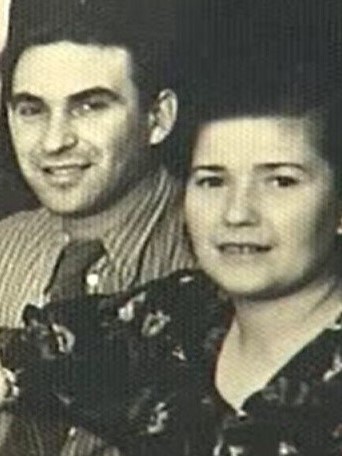Yefim Sirota was born in Odessa in 1924. His father Iohan was a native of Podolia, Ukraine, where, before the Revolution of 1917, he had served as the manager of an apartment house. After moving to Odessa, he became a worker at a metallurgical plant, and this change of profession would save his son Yefim from accusations of "bourgeois origins". His mother Maria (née Levinzon), Iohan's second wife, hailed from Hotin, northern Bessarabia, which became part of Romania after World War I. Iohan, who was more than twenty years older than Maria, died in the late 1930s. Yefim had a half-brother (the son of Iohan's first wife).
In June 1940, Bessarabia was re-annexed by the Soviet Union, and in June 1941, several days before the outbreak of the Soviet-German War, the family went to Hotin to visit Maria's relatives. Following the Nazi invasion, the Sirotas failed to evacuate or return to Odessa, and in July 1941 they found themselves under German-Romanian occupation. That month, they were moved from Hotin to the Secureni camp, and in September 1941 they were transferred to Transnistria. After much wandering, Yefim's family and other Jewish deportees from Hotin were settled in Murafa, south of Zhmerinka. There, Yefim and his mother managed to survive. On March 20, 1944, the area of Murafa was liberated by the Red Army, and the Sirotas returned to Odessa. In May 1944, Yefim Sirota was drafted into the Red Army. After three months of military and naval training, he was attached as a rifleman to the 384th Separate Battalion of the Marines, which specialized in operations behind enemy lines. On the night of August 23-24, 1944, the battalion landed in the small port of Jibrieni in southern Bessarabia (present-day Prymorske, Ukraine). Sirota was lightly wounded in this operation, but he continued to serve, and even managed to capture two German soldiers. On the next day, he participated in the takeover of the town of Vâlcov (present-day Vylkove, Ukraine), which was known as the "Danubian Venice". Since Romania had capitulated on August 23, 1944, both Jibrieni and Vâlcov were defended by German troops. For these two operations, Sirota was awarded the Order of the Red Banner. After Vâlcov, his battalion moved into Romania proper and took part in the takeover of Sulina. Upon entering Constanţa, a major Romanian port city, the battalion accepted the surrender of the Romanian Navy. In September 1944, Yefim Sirota and his battalion participated in the takeover of the Bulgarian cities of Varna and Burgas, and then Yefim was recalled to Constanţa, where he performed guard duty. There, in Constanţa, he met V-E Day.
After the war, Sirota continued to serve in the Red Army, being discharged only in 1950. In his interview 1, he maintains that he never experienced antisemitism while serving in his marine battalion, but he did experience it after the war.
- 1. YVA O.93/45156







